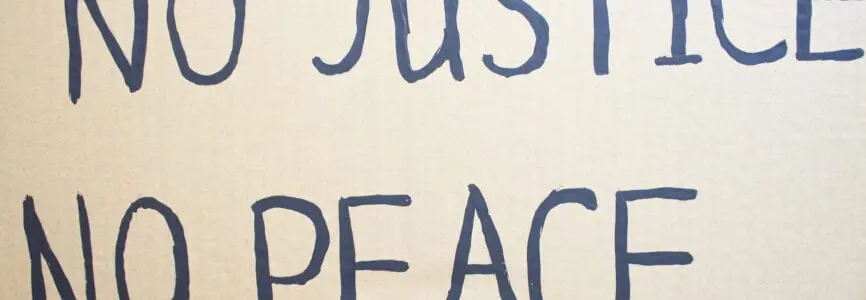Bioethics Forum Essay
Black Bioethics and How the Failures of the Profession Paved the Way for Its Existence
Recently the term black bioethics has been having its moment. With the world’s recently increased attention to racial justice, institutional racism, and medical racism, there has been more attention to the relationship between black people and health and health care. I’ve found myself using the term and along with my blog co-editor we have even created a toolkit of helpful sources on the topic of black health that we titled #BlackBioethics. But as far as I can find, on social media the term black bioethics has only been used casually going back to 2018. Some scholars have used it as a way to gather black bioethicists at bioethics conferences given our small numbers. Some scholars have used the term to refer to articles, podcasts, blogs, graphic art, and other materials that reference black people’s health or black bioethicists working in the field. But there hasn’t been sufficient attention given to what it means to use the term black bioethics and what it means for bioethics as whole.
In many ways, black bioethics can be explained very simply as the exploration and interrogation of any event, ideal, technological advancement, person, or institution that directly or indirectly affects the health or well-being of black (loosely defined) individuals or the black population. Black bioethics is taking what we do in bioethics and specifically applying it to black people. But in other ways black bioethics is more than this; it is a rebellion against bioethics.
Bioethics is stuck circling the same topics. The main culprits tend to be abortion, physician assisted death, emerging health technology, research ethics, the patient-physician relationship and a few other mainstay topics. Topics like social justice, racial justice, disability ethics, LGBTQ ethics, topics specific to immigrants, Latinx populations, and black populations are much less commonplace. This is partly due to bioethics programs’ poor job of recruiting and retaining diverse bioethicists. And from my own experience, it is partly due to established bioethicists making it clear that these kinds of topics are not “real bioethics.” These kinds of topics tend to get left out of mainstream bioethics because diverse and younger bioethicists that often research these areas get left out of publishing, grants, presenting at conferences, giving keynote lectures, conducting interviews for TV and print journals, or recording podcasts and all of the other forms of currency in our profession. As a result, bioethics is splintering into multiple parts. Bioethics has always had sub-fields, but this instance is different because even the sub-fields are splintering. And this is out of people’s frustration with not getting a seat at the proverbial bioethics table so instead they’re creating their own table.
Instead of begging for a seat at the table or accepting the scraps given to us, groups like disability ethicists have started their own journal. Black bioethicists have gotten their own book contracts for anthologies in an attempt to give a voice to black bioethicists. Latinx bioethicists have started their own website and their own blog to give Latinx bioethicists a voice. In other words, these groups have rebelled against bioethics and decided that if they want to do bioethics their way then they will just have to create their own path and help like-minded people walk down the path as well. Black bioethics is another case of a “we’ll do it ourselves” attitude that black people and other marginalized populations in many different arenas have had to adopt to have their interests acknowledged.
In part, the existence of black bioethics represents bioethics failure to fulfill its mission. Vulnerable populations, and those external and sometimes internal factors that make certain populations vulnerable is an essential topic in bioethics. Bioethicists frequently discuss what makes populations vulnerable in biomedical research. But when it comes to black people, a population made vulnerable by institutional and systemic injustice and historical and present-day abuses in medicine we somehow make this instance of vulnerability less important than others. Bioethics has forced black bioethics’ hand. Bioethics’ unwillingness to bend to cultural and professional shifts has created the need for black bioethics.
In many ways black bioethics is retaining the values, methodologies, and practices of bioethics, but abandoning its narrow vision of the field. Bioethics has given minimal attention to topics such as police brutality, social determinants of health that map onto racial disparities in health, provider bias, institutional racism and racial injustice, and other topics that specifically affect black people’s health. Black bioethicists and others interested in the health of black people have been producing work in this area for a long time but without the recognition they deserve from the bioethics profession. As a result, black bioethics researchers are carving out a space for themselves to articulate these topics and hopefully contribute to worldwide systemic changes in how we think about and view black people’s health. Bioethics as a whole owes black bioethics and all of the other subgroups that focus on marginalized people’s health a great deal for helping bioethics to remain relevant in a time when people are asking academia to do more to create real, lasting social change.
Keisha Ray, PhD, is an assistant professor at the McGovern Center for Humanities and Ethics, McGovern Medical School, University of Texas Health Science Center at Houston and co-editor of Bioethics.net.. This essay originally appeared in Bioethics.net. Twitter: @DrKeishaRay
45% of The Hastings Center’s work is supported by individual donors like you. Support our work.














This is the a-ha! Moment. It’s heartbreaking to read the about the atrocities committed against our race with no one speaking up against it.
Thank you for briefly defining black bioethics